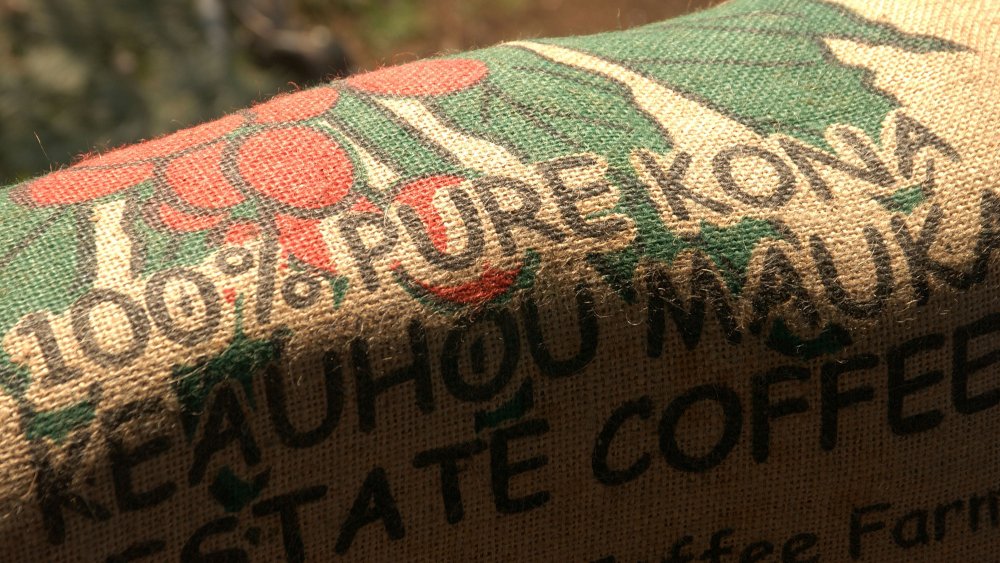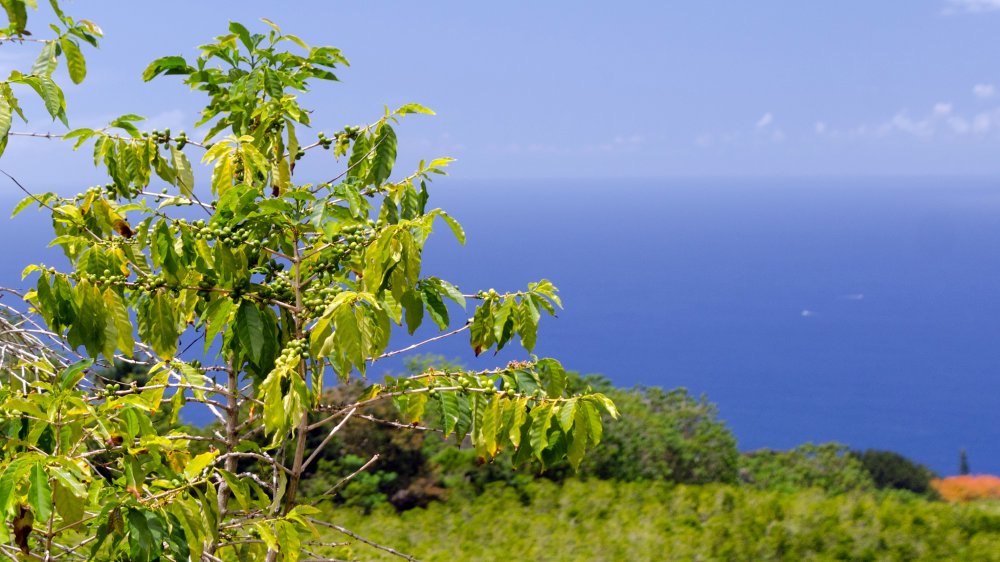Here's How To Tell If Your Kona Coffee Is Real Or Fake
If you're not familiar with Kona coffee, it's some of the absolute best coffee in the world. It's also some of the most expensive, which makes it a presumably great target for what's known as food fraud. In fact, there's even a new lawsuit from Hawaiian Kona coffee producers to take down those who are selling mislabeled coffee — labels that often lead consumers to believe that the coffee is real Kona coffee. That's why it is so important to look for certain factors to ensure your Kona coffee is the real deal (via Food & Wine).
One major tipoff that proves this food fraud is happening can be traced back to how much authentic Kona coffee is produced each year. Only 2.7 million pounds of real Kona coffee is produced annually, though reports show 20 million pounds of coffee labeled as Kona are sold per year. This is why it's so important to read the labels carefully (via Kona Coffee).
Look for this key factor in Kona coffee beans
One of the most common ways Kona coffee food fraud happens is through blends. Many brands sell Kona coffee blends that are obviously less than 100 percent Kona coffee and often are sold at a price that is not fitting for the small amount of Kona that is in the blend. Though some blends are quite good, it is important to know the amount of Kona coffee in the blend so you can avoid overpaying. Blends are often labeled with names like "Kona Sunset," "Kona Sunrise," "Kona Gold," "Kona Roast," or "Royal Kona."
It's also very important to read the small print on the label. Kona coffee only comes from certain regions of Hawaii. That means that brands claiming their Kona coffee comes from anywhere else are selling fake Kona beans. That's why, in Hawaii, it is required by law that coffee bags have the percentage of Kona coffee listed on the label. It's also required that blends contain at least 10 percent Kona coffee.
Keep an eye out for the results of another upcoming class-action lawsuit in Hawaii. Clearly, as one of the state's expensive and exclusive exports, maintaining the quality of Kona coffee is important. So, if the lawsuit is successful, it might be easier across the country to find the real deal without so much scrutiny in the future.

